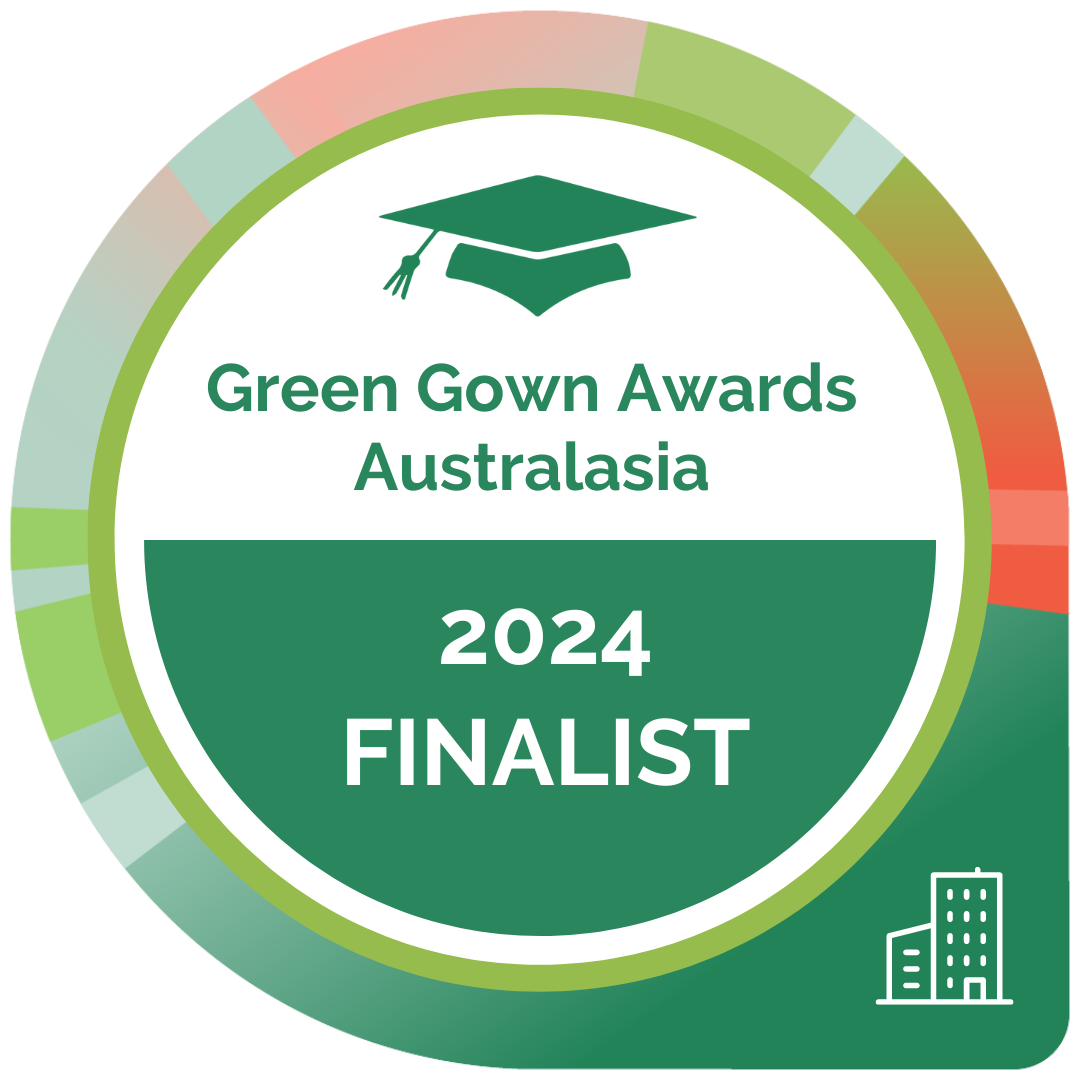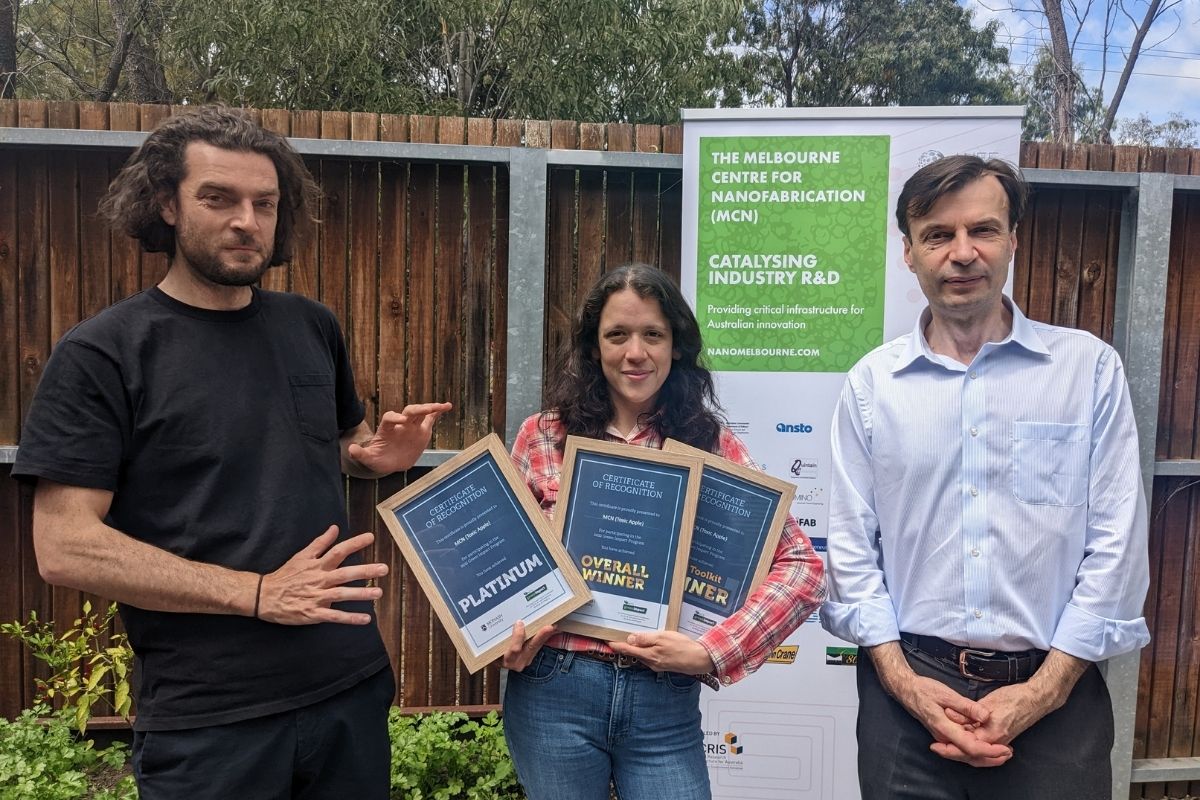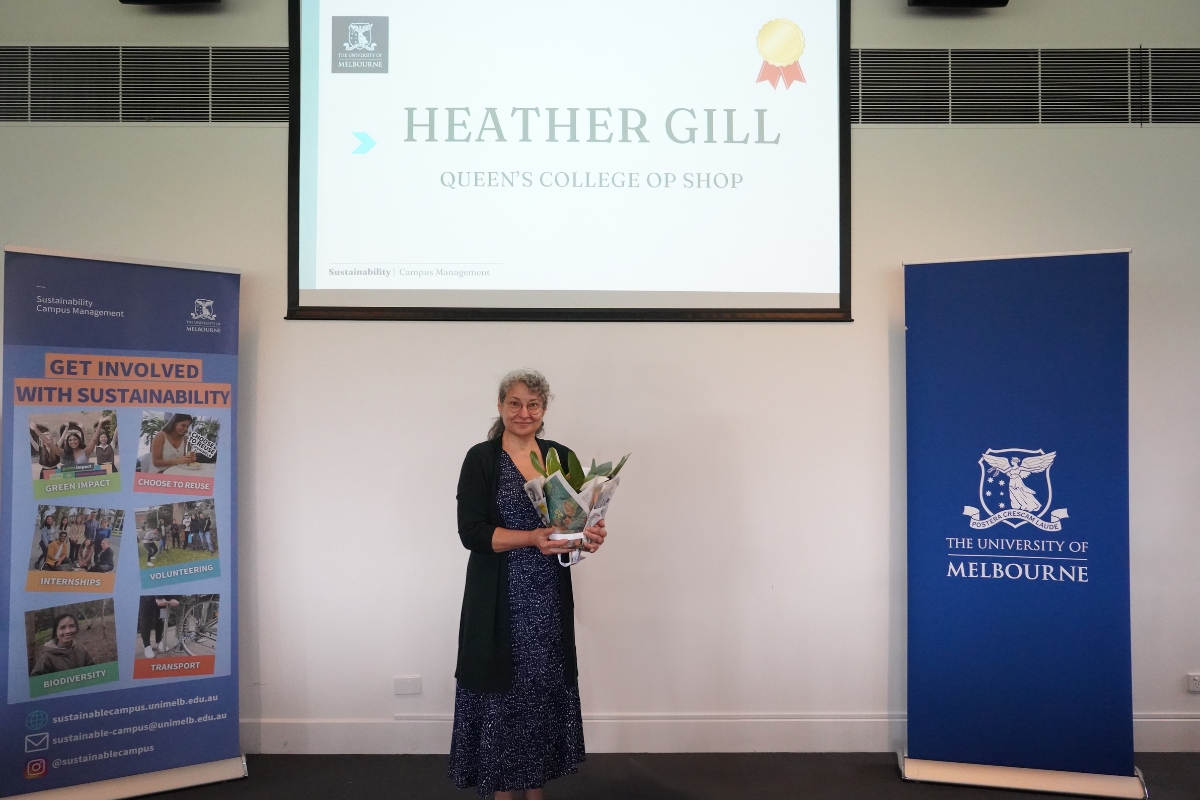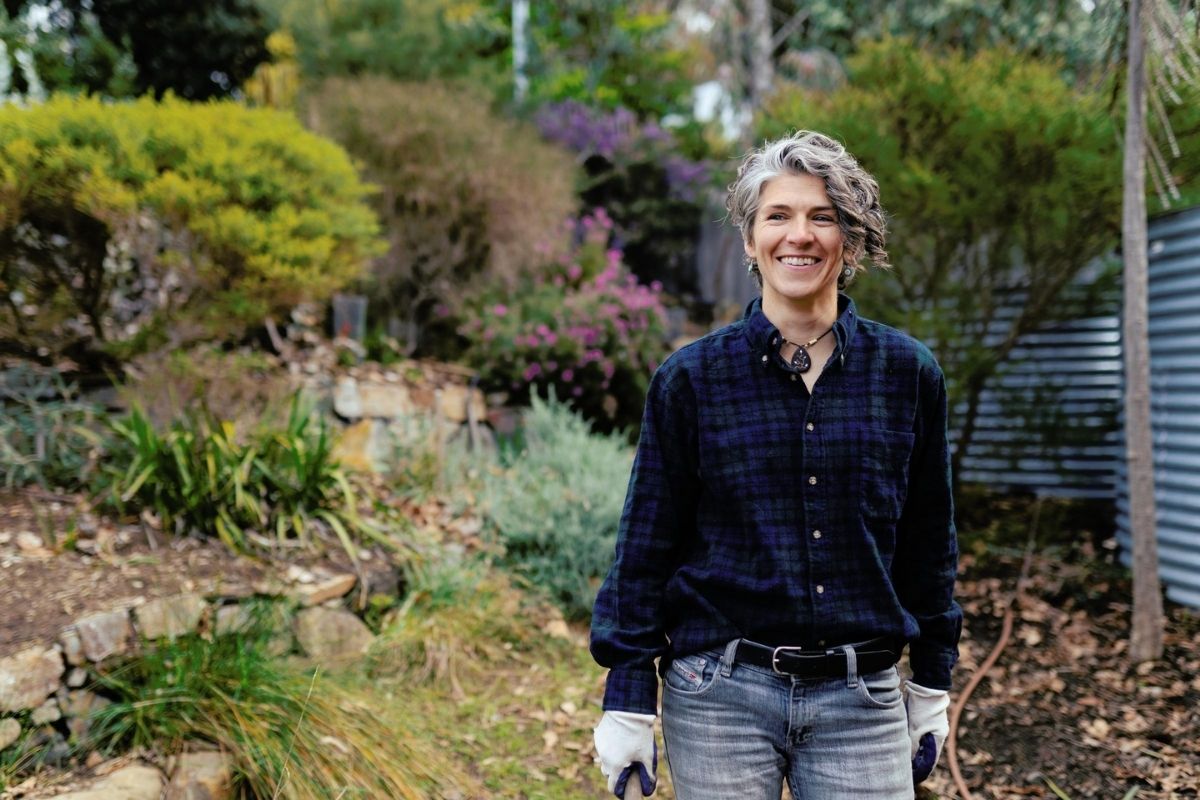Staff Champion category
Mr. Thomas Biedermann, a Project Manager at the Australian National University (ANU) School of Cybernetics, has expertly combined ANU’s strategic priorities of environmental sustainability and cybernetic methodologies to pioneer impactful sustainability initiatives. Building on the School’s commitment to sustainability in operations, staff/HDR research and teaching, Mr. Biedermann has led a group of peers to further develop the School as a “living lab” for developing cybernetic approaches to pilot, scale up and embed sustainable practices into operational procedures and governance structures.

Impacts and Benefits
- Established a food/organic waste collection and composting system, diverting 12kg per week of organic waste from general disposal to local composting initiatives.
- Promoted low-carbon travel and reduced single-use plastics, embedding sustainability into daily operations and School governance structures.
- Led the ANU School of Cybernetics to win the 2023 ANU Green Impact Challenge and received the ANU Green Impact Engagement Innovator Award.
Leadership and Engagement
- Utilised participatory leadership and cybernetic principles to create a team of volunteers who collaboratively implemented sustainability actions.
- Engaged the broader School community through regular updates and invitations for participation, ensuring that diverse perspectives shaped initiatives and inviting the School community to reflect and propose initiatives
- Integrated sustainability practices into School guidelines, procedures, and onboarding materials to ensure durability and scalability.
Wider Societal Impact
- Ongoing study of the potential of embedding sustainability in business-as-usual processes within an academic setting, serving as a model for other institutions.
- Fostered a sense of agency and competence among staff and students, reducing climate anxiety and promoting proactive sustainability actions.
- Initiated ongoing collaborations with ANU Kitchen Gardens and waste management teams to expand sustainable practices across the University and beyond.
Supported by

Related finalists
Staff Champion
Staff Champion
Highly Commended/Staff Champion
Highly Commended/Staff Champion
Staff Champion/Winners
Staff Champion/Winners
Past Winners
Benefitting Society/Winners
Benefitting Society/Winners
Diversity, Equity & Inclusion in Sustainability/Winners
Diversity, Equity & Inclusion in Sustainability/Winners
Climate Action/Winners
Climate Action/Winners
Sustainability Institution of the Year/Winners
Sustainability Institution of the Year/Winners
Creating Impact/Winners
Creating Impact/Winners
Creating Impact/Winners
Creating Impact/Winners
Mr. Thomas Biedermann, a Project Manager at the Australian National University (ANU) School of Cybernetics, has expertly combined ANU’s strategic priorities of environmental sustainability and cybernetic methodologies to pioneer impactful sustainability initiatives. Building on the School’s commitment to sustainability in operations, staff/HDR research and teaching, Mr. Biedermann has led a group of peers to further develop the School as a “living lab” for developing cybernetic approaches to pilot, scale up and embed sustainable practices into operational procedures and governance structures.

Impacts and Benefits
- Established a food/organic waste collection and composting system, diverting 12kg per week of organic waste from general disposal to local composting initiatives.
- Promoted low-carbon travel and reduced single-use plastics, embedding sustainability into daily operations and School governance structures.
- Led the ANU School of Cybernetics to win the 2023 ANU Green Impact Challenge and received the ANU Green Impact Engagement Innovator Award.
Leadership and Engagement
- Utilised participatory leadership and cybernetic principles to create a team of volunteers who collaboratively implemented sustainability actions.
- Engaged the broader School community through regular updates and invitations for participation, ensuring that diverse perspectives shaped initiatives and inviting the School community to reflect and propose initiatives
- Integrated sustainability practices into School guidelines, procedures, and onboarding materials to ensure durability and scalability.
Wider Societal Impact
- Ongoing study of the potential of embedding sustainability in business-as-usual processes within an academic setting, serving as a model for other institutions.
- Fostered a sense of agency and competence among staff and students, reducing climate anxiety and promoting proactive sustainability actions.
- Initiated ongoing collaborations with ANU Kitchen Gardens and waste management teams to expand sustainable practices across the University and beyond.
Supported by

Related finalists
Staff Champion/Winners
Staff Champion/Winners
Highly Commended/Staff Champion
Highly Commended/Staff Champion
Staff Champion
Staff Champion
Other finalists
Climate Action
Climate Action
Sustainability Champion – Staff/Winners
Sustainability Champion – Staff/Winners
Student Engagement
Student Engagement















